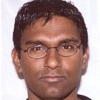iWeek is South Africa’s leading annual Internet industry conference, and has been held each year since 2001. iWeek brought together all of South Africa’s major Internet organizations for a series of presentations, workshops, training programs, and social events. The event partners were:
- The Internet Service Providers’ Association (ISPA)
- The ZA Central Registry (ZACR)
- The ZA Domain Name Authority (ZADNA)
- The South African Internet Exchange (INX-ZA)
ION Cape Town had generous support from ION Conference series partner Afilias.
ION Conferences bring network engineers and leading industry experts together to discuss emerging technologies including IPv6, DNSSEC, and Securing BGP, and TLS for Applications. Early adopters provide valuable insight into their own deployment experiences and bring participants up to speed on new standards emerging from the IETF.
ION lets network operators stay ahead of the curve to understand and deploy emerging Internet technologies, and presents a unique opportunity to discuss the future of the Internet with the people who help craft it. More than a simple lecture series, ION events provide hands-on interaction with our speakers so you walk away with the answers you need to deploy new standards and technologies on your own networks.
Events bring together the best and brightest from the Internet industry to learn about the latest news, ideas, and technologies in a relaxed and educational atmosphere.
Agenda and Presentations
| TIME | SCHEMA |
| 9:00 AM | Opening Remarks Megan Kruse, Internet Society Video Archive | Presentation |
| 9:15 AM | Welcome from the Internet Society South Africa Chapter Alan Levin Video Archive |
| 9:30 AM | Welcome from the Internet Society South Africa-Gauteng Chapter Gabriel Ramokotjo Video Archive | Presentation |
| 9:45 AM | Collaborative Security: Routing Resilience Manifesto and MANRS The Routing Resilience Manifesto initiative, underpinned by the “Mutually Agreed Norms for Routing Security (MANRS)” document that includes a set of actionable recommendations, aims to help network operators around the world work together to improve the security and resilience of the global routing system. In this session, we’ll explain the basic principles outlined in MANRS, how to sign up and support the effort, and how to get involved in helping to further increase global routing security. Andrei Robachevsky, Internet Society Video Archive | Presentation |
| 10:00 AM | Deploying DNSSEC: A Case Study This session will explore one organization’s technical solution for deploying DNSSEC support within its country code Top Level Domain (ccTLD). With a goal of making it easier for domain name holders to easily add DNSSEC, we will take a quick look at the DNSSEC implementation strategy, the status/progress of signed domains, and lessons learned and challenges for increasing the percentage of signed domain names. Mark Elkins, Posix Systems – (South) Africa Video Archive | Presentation |
| 10:30 AM | TEA BREAK |
| 11:00 AM | Why Implement DNSSEC? DNSSEC helps prevent attackers from subverting and modifying DNS messages and sending users to wrong (and potentially malicious) sites. So what needs to be done for DNSSEC to be deployed on a large scale? We’ll discuss the business reasons for, and financial implications of, deploying DNSSEC, from staying ahead of the technological curve, to staying ahead of your competition, to keeping your customers satisfied and secure on the Internet. We’ll also examine some of the challenges operators have faced and the opportunities to address those challenges and move deployment forward. Simon Balthazar, TZNIC Video Archive | Presentation |
| 11:30 AM | DANE: The Future of Transport Layer Security (TLS) If you connect to a “secure” server using TLS/SSL (such as a web server, email server or xmpp server), how do you know you are using the correct certificate? With DNSSEC now being deployed, a new protocol has emerged called “DANE” (“DNS-Based Authentication of Named Entities“), which allows you to securely specify exactly which TLS/SSL certificate an application should use to connect to your site. DANE has great potential to make the Internet much more secure by marrying the strong integrity protection of DNSSEC with the confidentiality of SSL/TLS certificates. In this session, we will explain how DANE works and how you can use it to secure your websites, email, XMPP, VoIP, and other web services. Michuki Mwangi, Internet Society Video Archive | Presentation |
| 12:00 PM | DANE/DNSSEC/TLS Testing in the Go6lab Jan Zorz set up DNSSEC, DANE, and TLS in his go6lab and then tested the implementations in the top one million Alexa domains. Jan will share his experiences deploying, testing, and evaluating DNSSEC, DANE, and TLS in his own lab and explain the process he used. Jan Žorž, Internet Society Video Archive | Presentation |
| 12:30 PM | LUNCH BREAK |
| 1:30 PM | What’s Happening at the IETF? Internet Standards and How to Get Involved What’s happening at the Internet Engineering Task Force (IETF)? What RFCs and Internet-Drafts are in progress related to IPv6, DNSSEC, Routing Security/Resiliency, and other key topics? We’ll give an overview of the ongoing discussions in several working groups and discuss the outcomes of recent Birds-of-a-Feather (BoF) sessions, and provide a preview of what to expect in future discussions. Andrei Robachevsky, Internet Society Video Archive | Presentation |
| 1:45 PM | IETF, Operational Experience, and Africa The Internet Society is working toward fostering a larger and more engaged network operator community around the IETF and protocol development work. Part of that work was a survey of network operators in 2014 and an Internet-Draft about its results. We’re also interested specifically in bringing more African engineers with operational experience into the IETF, and perhaps even bringing a physical IETF meeting to the continent of Africa within the next few years. We’ll outline some of our recent work and hope to make this an interactive session to learn from the local community how to encourage more IETF participation. Michuki Mwangi, Internet Society Video Archive | Presentation |
| 2:15 PM | Best Current Operational Practices – An Update The Internet Engineering Task Force (IETF) standardizes the protocols and services that vendors implement and network operators are supposed to deploy and use. We believe there is an opportunity to better identify, capture, and promote best current operational practices emerging from various regional network operators’ groups. We believe sharing these documents across the globe would benefit the wider Internet community and help more operators deploy new technologies like IPv6 and DNSSEC faster and easier. Deploy360’s Jan Zorz will give an update on this progress, discuss the status of BCOP efforts across the world, and give an overview of some of the documents in the process so far. Jan Žorž, Internet Society Video Archive | Presentation |
| 2:30 PM | Applying the 4DX Methodology to IPv6 Deployment Three years ago on World IPv6 Launch, thousands of ISPs, home networking equipment manufacturers, and web companies around the world united to permanently enable IPv6 on their products and services. With the global IPv6 traffic at 5% and growing, Africa’s share of that IPv6 traffic is negligible. Yet IPv6 deployment is one of those initiatives that everyone agrees is merely important and will forever be at the mercy of other initiatives that are urgent. How do you change that? By using the proven methodology 4DX that will guarantee the IPv6 deployment project has a chance amidst the whirlwind of other urgent initiatives. This should certainly start moving up dial on IPv6 traffic in Africa. Mukom Akong Tamon, AfriNIC Video Archive | Presentation |
| 3:00 PM | TEA BREAK |
| 3:30 PM | IPv6 Success Stories– Network Operators Tell All! In this session, we invite network operators to share their IPv6 success stories and lessons learned along the way that can help other managers of networks deploy IPv6. How did they do it? What technical, organizational, and political challenges did they face? Attendees will gain vital insight as network operators lay out the stages for IPv6 implementation—creating the business case for management buy-in, initiating a planning process, flipping the switch, and, finally, gathering measurements and proving success. Moderator: Nishal Gorbudhan (Packet Clearing House) Panelists: Andrew Alston, Liquid Telecom; Graham Beneke, eNetworks; Ben Maddison, Workonline Communications (Pty) Ltd.; Mark Tinka, SeaCom Video Archive |
| 4:30 PM | Closing Remarks Megan Kruse, Internet Society Video Archive | Presentation |
Speakers
Andrew Alston, Group Head of IP Strategy, Liquid Telecommunications

Andrew Alston has worked in the industry full time for 20 years, since the age of 16. He founded Africa’s first IT security company, and was involved in the Internet security industry for many years before switching directions and moving into the networking field. Andrew was appointed as the Chief Technology officer for the South African national research and education network, where he, together with the TENET team, spearheaded the design and deployment of Africa’s fastest network, which included the deployment of Africa’s first 10G localised peering, the landing and commissioning of the first aggregated 10G circuit to Europe, and the first fully IPv6 enabled backbone. After 6 years with TENET, Andrew turned his sights further afield in a quest for new challenges, and joined Liquid with the objective being to be part of build Africa’s new fastest network, the Liquid Telecommunications network.
Andrew has also been involved in the policy side of the African internet for many years, and in addition to his current work with Liquid, Andrew was also elected last year to the board of AfriNIC where he continues to serve.
Andrew now lives in Kenya and is happily married to a wonderful Kenyan wife!
Simon Balthazar, Technical Contact, Tanzania Network Information Center (tzNIC)

Simon Balthazar is the Technical Contact for .tz ccTLD at Tanzania Network Information Center (tzNIC), a registry of .tz domains. He has been with tzNIC since its humble beginning in 2008 where he played a key role in the redelegation and migration of .tz domain. He has extensive knowledge and experience in Domain Name System and its related technologies. Simon championed the first deployment of IPv6 in Tanzania and most recently deployment of DNSSEC at the .tz registry. He actively contributes both locally and regionally as one of the resource persons for AfTLD where he participates in training engineers from other emerging ccTLDs in Africa. He works on part time basis with NSRC in training engineers in NRENs in Africa and as well as participating in direct engineering assistance for universities across the continent. Prior to joining tzNIC, Simon worked in the telecommunication industry with Tanzania Telecommunication Company Ltd. and Vodacom Tanzania Ltd.
Graham Beneke, Technical Pre-Sales Specialist, eNetworks

Graham is Technical Pre-sales Specialist for eNetworks, an Internet service company providing online solutions such as web hosting, email spam scanning and firewall security.
Previously, he was a Network Engineer at Neology, a South African network solutions provider for the ISP and enterprise markets, where he designed and maintained core network infrastructure for mobile and fixed line operators and ISPs across Africa. He also maintained Neology’s international IPv4 and IPv6 backbone, which is used to provide Internet services to numerous organizations.
Graham is a member of the management committee of the Internet Service Providers Association (ISPA), South Africa. His responsibilities include chairing the Internet Exchange (INX) policy and technical working group, which in turn drives the operations of Johannesburg Internet Exchange (JINX) and Cape Town Internet Exchange (CINX), Africa’s two largest Internet exchange points by traffic volume. Additionally, he is a Council Member at the National Broadband Advisory Council, and owns Apolix Internet, a company that offers domain names and website hosting.
Graham is based in Johannesburg, South Africa.
Mark Elkins, Posix Systems

Mark was born and educated in the UK. He attended Queen Mary College (London University) from 1979 to 1983. From that very first day at university – Mark has been working on Unix based computer systems. He moved to South Africa in 1984.
After twelve years at Olivetti Systems and Networks, he started his own company (Posix Systems – an Internet Service Provider) and has been involved in Computer Communications since 1986.
A founder of UniForum SA (now the ZACR), he acquired the administered of the “CO.ZA” Domain name system on behalf of UniForum S.A. from 1995.
He became CCIE (Cisco Engineer) No.1992, 6 June 1996. (10th in Africa) Running IPv6 at Posix Systems since January 2007. He has completed various FoT (Fibre Technician) courses, including Design and FTTH in July 2011.
He is very active in the Internet Industry around Africa, involved with AfrISPA (teaching ISP’s how to form IXP’s (Internet Exchange Points), does a lot of DNS Teaching on behalf of ZACR and is also very involved with AfriNIC.
He has been involved in various Internet governmental forums and gave IPv6 based presentations at the 2009 IGF (Internet Governance Forum) in Egypt. He sat on the (Dept. of Communications) South African IPv6 Task force committee.
He is a Member of the IoD (Institution of Directors) 2011 and has completing their “Being a Director” courses.
Current Directorships include:
AfriNIC, COZA Cares, Posix Systems (Owner), Domain Name Services and various other organisations (Die Wilgers Home Owners Association, Wapadrand Office Park – Chair)
Current dream: Currently planning to roll out Dark Fibre and FTTH from Johannesburg to Messina! See ftth.posix.co.za
Hobbies include SCUBA Diving (NAUI Instructor).
In particular, at the ZACR, Mark is deeply involved in the dotAfrica project, that is, to run the ‘.africa’ gTLD domain.
Nishal Goburdhan, Internet Infrastructure Analyst, Packet Clearing House

Nishal is an Internet Infrastructure Analyst at Packet Clearing House (PCH), a non-profit that exists primarily to build and support Internet Exchange Points (IXPs), and which has done so more than two hundred times during the past twenty years.
Nishal is also the Internet Service Providers Association’s (ISPA) country manager for the Internet Exchange Points (INXes) for South Africa. Both from a technical and policy background, Nishal has been involved in developing interconnections and IXPs in many countries, and brings years of experience to Africa’s largest peering points.
He has been CTO, and Senior Project Manager: Global Infrastructure, for AfriNIC, the Regional Internet Registry for Africa. During his 12 year tenure at Internet Solutions, South Africa’s largest corporate ISP, he played a critical role in expanding of the company’s infrastructure internationally and ultimately across four continents.
Nishal is passionate about transferring knowledge to developing countries. He is a volunteer instructor for the African Network Operators Group (AfNOG), and an IEEE member.
Nishal is based in Johannesburg, South Africa.
Megan Kruse, Manager, Technology Outreach and Strategic Planning, Internet Society

Megan Kruse joined the Internet Society in June 2011, first working within the Deployment & Operationalization Team and then moving into the Office of the CITO. As Manager, Technology Outreach and Strategic Planning, she helps foster Internet growth by encouraging the deployment of key Internet technologies including IPv6, DNSSEC, and Routing Security. She plans and executes educational outreach projects for industry leaders and technology decision makers worldwide including publications, meetings and conferences, and social media activities.
Before joining the Internet Society, Megan managed public relations and outreach projects at the American Registry for Internet Numbers (ARIN). In addition to promoting the company’s key messages and positioning its top executives as industry experts, she developed ARIN’s social media and communications efforts surrounding the depletion of IPv4 address space and the need to adopt IPv6.
Alan Levin, Chairman, ISOC-ZA

My passion and career goal is to create jobs and build the African economy (and information society), from Cape Town, using the Internet.
My strengths include some business savvy, financial acumen and the ability to operate in an organisation as a change agent.
Specialties: Policy development, governance, business development, systems development, strategy planning and management, all things Internet.
Ben Maddison, Director, Workonline Communications

Ben Maddison is Director and Co-Founder of Workonline Communications (Pty) Ltd with the responsibility of technology innovation and implementation. Workonline Communications, based in South Africa, is an innovative pan-African service provider of connectivity services.
Workonline Communications owes its strength, growth, and fast expansion to Ben’s dedication, passion, and unparalleled work ethics. Founded in Cape Town in 2006, Workonline is a privately owned company whose customers include some of the world’s largest telecommunication companies. Workonline provides services to the wholesale market, as well as specialised services to the medium and large enterprise market. Ben prides himself on the stability, resilience and redundancy provisions of the Workonline Communications network, which operates according to the highest standards.
His initial vision of being a trusted advisor to clients, and driving innovation and agility remain at the core of Workonline’s business. Designing innovative commercial and technical solutions has given them the edge and led to their healthy growth over the past nine years.
Michuki Mwangi, Senior Development Manager for Africa, Internet Society

Michuki Mwangi joined ISOC in April 2008 as Senior Education Manager working with the Education team to promote Internet growth and sustainability in the developing world.
Michuki has long been active in the African and global Internet communities, having been centrally involved in key infrastructure developments, technical coordination activities, and policy-making forums.
Before joining ISOC, Michuki was an Internet technology consultant. He previously served as the Administrative Manager at the .KE registry (KENIC) and serves as president of the African Top Level Domain (AfTLD) Association and Chief Technology Officer (CTO) of the Kenya Internet Exchange Point (KIXP), both in a volunteer capacity. He facilitated the anycast deployment of the .COM, .NET, F, and J root servers in Kenya, as well as other key infrastructure deployments in Africa.
He is active in the African Network Operators Group (AfNOG), the Country Code Name Supporting Organization (ccNSO) of ICANN, AfriNIC (the Regional Internet Registry for Africa), and several other local and international technology groups. Michuki has also been involved in the Internet Governance Forum (IGF) discussions since the World Summit on the Information Society (WSIS) meeting in Tunis.
Michuki holds a diploma in computer analysis and design from Data Center College in Nairobi, Kenya. He has also received additional training in Scalable Network infrastructure and services at AfNOG. In 2006, he was selected as an ISOC Fellow to the IETF (attending the 66th IETF meeting, in Montreal, Canada).
Michuki is based in Nairobi, Kenya.
Gabriel Ramokotjo, Chairman, Internet Society Gauteng Chapter

Gabriel Ramokotjo is an Internet Activist, who currently serves as the Chairman of Internet Society Gauteng Chapter, where he leads the Chapter and manages its activities.
Gabriel works closely with the Soweto Wireless User Group (affiliated with SowetoiLAB, a non-profit innovation laboratory located in Soweto, South Africa) to roll out free Wi-Fi for the community of Soweto, focusing on innovative ways to bring disadvantaged African communities up to speed on current technologies and encourage more participation in the technology industry as a whole.
Previously a member of the technical support team at The ZA Central Registry (ZACR), where he was responsible for helping clients set up name servers for their domain names and resolving DNS queries using the Linux operating system.
Gabriel is based in Johannesburg, South Africa.
Andrei Robachevsky, Technology Programme Manager, Internet Society

Andrei Robachevsky joined the Internet Society’s Standards & Technology Department in March 2011.
Andrei’s primary area of interest is security and resilience of the Internet infrastructure. This work is based on active engagement with the operator, research and policy communities.
Prior to joining ISOC, Andrei was Chief Technical Officer of the RIPE NCC, leading the development of company’s IT strategy, external and internal IT services, and work of the engineering departments. He was responsible for the deployment of DNSSEC for the reverse DNS tree and deployment of anycast instances of the K-root DNS server.
Andrei brings to the Internet Society more than 10 years experience in the Internet technical community. For more than a decade he is actively following Regional Internet Registry (RIR) and Internet Engineering Task Force (IETF) activities. He was Chair of the Number Resource Organization’s (NRO) Engineering Coordination Group (ECG), which is responsible for various technical inter-RIR activities and projects. In 2010-2012 Andrei was a member of the Internet Architecture Board (IAB).
Andrei is based in Amsterdam, The Netherlands.
Mukom Akong Tamon, Head of Capacity Development & Professional Services, AFRINIC

Mukom Akong Tamon is Head of Capacity Development & Professional Services at the African Network Information Center (AFRINIC) based in Mauritius. He created and runs AFRINIC’s IPv6 training program which has trained more than 2000 network engineers in 45+ countries on the skills needed to plan and deploy next-generation IPv6 networks.
He is also the creator of AFRINIC’s “IPv6 Strategy & Planning” aka “IPv6 for Managers’” course which helps decision makers better understand the strategic issues relating to IPv4 exhaustion and how to effectively plan and support IPv6 deployment. Mukom is the main author of the IPv6 Forum’s “IPv6 for Systems Engineers” program which standardised the skills needed by systems engineers to deploy IPv6 services.
Before joining AFRINIC, Mukom worked at Kaduna Business School, Ahmadu Bello University, the United Nations Development Program and volunteered as trainer & curriculum designer for the Nigerian Network Operators’ Group. In these roles, Mukom has trained more than 1000 managers and executives on think and use IT strategically.
A citizen of Cameroon, trained as an Electrical Engineer, Mukom’s experience spans Information Technology, management consulting, executive education and international development industries. He is Lean Six Sigma Certified by the Chartered Quality Institute of the UK, 4DX (the 4 Disciplines of Execution) certified by Franklin Covey as well as IPv6 Forum Certified (Gold) Engineer and Trainer.
Mark Tinka, Head of Engineering, SEACOM

Mark has been in the Internet industry since 1999, having helped build various Internet Exchange Points (IXP’s) in Uganda, Swaziland, Zimbabwe, Zambia, Botswana and Malawi. He was also instrumental in shaping the technological advancements and construction of the service networks of Africa Online, a Pan-African Internet Service Provider with eight operations on the continent, Global Transit and TIME dotCom, two Malaysian sister organizations engaged in wholesale and retail infrastructure services in Malaysia, when he worked there. Mark is heavily involved in various community organizations such as AfNOG, APRICOT, MyNOG, AfPIF, e.t.c. He is now based in Johannesburg, South Africa, where he is the Head of Engineering at SEACOM, a submarine cable operator along the coast of East and Southern Africa.
Jan Žorž, Operational Engagement Programme Manager, Internet Society

Jan is the Internet Society’s Operational Engagement Programme Manager. He works on operational initiatives to ease the deployment of IPv6 and other technologies. He is also working to help the industry document best current operational practices and to improve operator feedback to the IETF.
Jan is one of the pioneers of SiOL, the Slovenian national ISP, and has been involved in the organization from the beginning. For the last seven years, Jan has been working as a consultant in the IT field, specializing in IPv6. He co-founded the Go6 institute (not-for-profit), a Slovenian IPv6 initiative whose main objective is to raise IPv6 awareness in Slovenia and alert the community to the fact that we are approaching extensive changes on the Internet.
Due to the success of Go6 Institute, Slovenia is currently leading the EU as the country most prepared for IPv6 (according to the RIPE NCC’s IPv6 RIPEness study). Jan has been invited to present around the world on his work, the model of the Go6 platform, IPv6 awareness raising and deployment at the national level. Jan is also primary co-author of a very successful procurement (specification) paper, published as official RIPE Best Current Practice document RIPE-501, titled “Requirements For IPv6 in ICT Equipment”. This document is translated into more than 10 languages and is used around the world by enterprises and governments when requesting IPv6 features in ICT equipment purchases. RIPE-501 was recently replaced by RIPE-554, also co-authored by Merike Kaeo, Sander Steffann and Jan Žorž.

